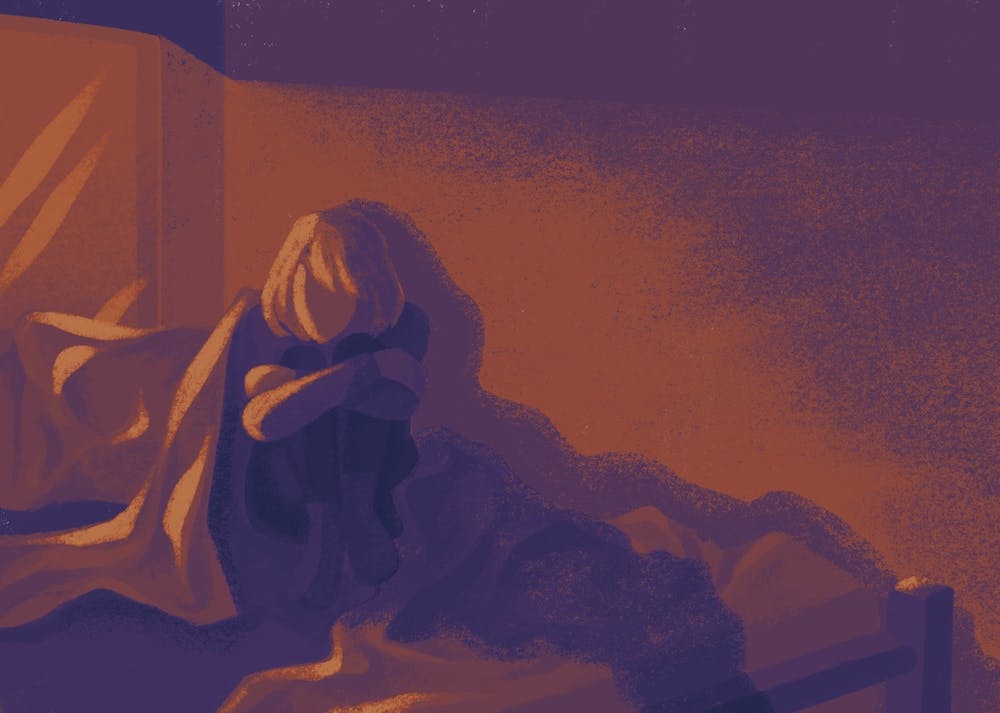In a nine-page zine featuring stories of students' experiences with ASU Counseling Services, four ASU students have taken what began as a group project to exchanges with the University’s highest officials about changing operations to better accommodate students with disabilities.
The four creators of the zine, seniors Lucas Selby, Anjali Mistry, Taylor Carstens and graduate student Kevin Kobey, originally came together as classmates in their "Disrupting Dis/Ability" course to create a project that disrupts ableism in higher education.
The zine, called "Voices of ASU," was the result of their collaboration. In 11 stories about ASU Counseling shared through a Google form, students recollected experiences diverse in quality and length, many detailed and personal.
One student said it was helpful to talk to ASU Counseling, and they were accommodating of the student's financial challenges, waiving fees for their sessions.
Another student said after she attempted suicide, she was told she needed a "behavioral health analysis" from ASU Counseling if she wanted to move back into her dorm room. She said when she went to her appointment, a master's student there told her, "Just ... don't do it again, hon, and everything will be fine."
“It was just really nice to see that we had so many people who were so committed to sharing,” Carstens said. “We never had a goal of really getting enough, we felt whether we got one response or many responses, it was going to be important to share those voices.”
The group distributed printed copies of the zine, shared it on social media and emailed it to University administrators like President Michael Crow, counseling directors and Dean of Students Cassandra Aska mid-semester.
Shortly after, the group received responses from administrators and met with leadership from ASU Counseling and the Dean of Students office.
The group said one of their main points of discussion with the administration was the way ASU Counseling handles asking students if graduate students can be present for their counseling sessions, which the group said put students in an uncomfortable position where they felt they couldn’t say no.
Another main point of discussion was the University’s syllabus format, which the group said needed to be more accommodating.
“There were just a lot of avenues that made ASU counseling seem like it was kind of inaccessible to students and that the experience was more so used to offer data to grad students rather than the counseling experience focusing on the student itself,” Mistry said.
The group said administrators told them they would consider changing the University's syllabus format to better emphasize resources like counseling and tutoring above academic policies and change the counseling intake process to reduce potential pressure on students to consent to having a graduate student present during their sessions.
In a written statement, Aaron Krasnow, associate vice president and director of ASU Counseling Services, said his department always welcomes and honors feedback from students, and will keep in touch with the creators of the zine to listen for continued feedback.
“In the dialogue we were able to identify a few areas of improvement, including improving our explanation of services offered (and not offered) and how students can indicate counselor preference earlier in the process so that at first appointment we can have the best chance at matching student need and our counselors,” he wrote.
Kobey said making changes like the ones discussed in their meetings could spark change in the way students and the administration think about resources like counseling, disability accommodations and tutoring — changes that could make a massive difference in all students' health.
"I want to change the world," he said. "I want people to stop whispering about suicide, addiction and mental illness. I want people to be able to talk about it. I want people to be able to feel comfortable with it."
The group said the experience of creating the zine opened their eyes to a community of students they hadn't heard from before, and they will continue to collect responses to the Google form.
"I really appreciate the reach that this zine has gotten," Selby said. "It's great to share these student voices, it's great that these students feel they have an outlet to share. And it's great that people actually seem to care that people actually seem to want positive change in ASU Counseling."
Kobey said because of his experiences as a person with a disability and a behavioral health technician, the zine means something different to him than it does to his classmates, who he said are "amazing beyond anything in the world."
Helping people with disabilities gain independence is his life’s work, he said, but his classmates’ careers are just beginning.
“These are students who may have an interest, but they haven't found their passion yet,” Kobey said. “And what they did with this zine is short of miraculous.”
Editor's note: Anjali Mistry was an opinion columnist at The State Press in 2018.
Reach the reporter at gforslun@asu.edu and on Twitter @GretaForslund.
Like The State Press on Facebook and follow @statepress on Twitter.




